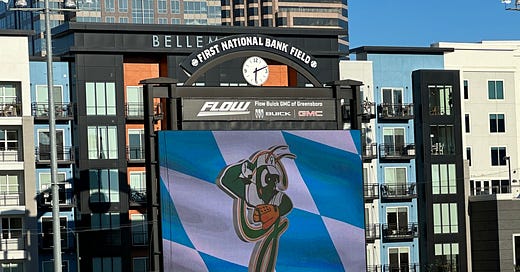Contractual Information for Non-Roster Invites
Breaking down contractual implications of the non-roster invitees in camp
As Spring Training moves along, the allure can start to fade away. As anticipation for the actual season grows, so does the suspense surrounding the final decisions for the roster heading into Opening Day.
Those decisions often involve the rosters’ fringes, where Non-Roster Invites (or NRIs) live, scratching and clawing to earn their chance at a roster spot.
Decisions usually involve contractual options, which we are often unaware of. Fortunately, I have some relevant information to share, and hopefully, it can help us understand how some of these final decisions will play out.
The following is a list of NRIs with any known clauses in their contract. It certainly is not an exhaustive list, but it should help to at least shed some light on an often cloudy situation:
Chase Anderson
Release: March 24th, May 1st, June 1st
Brent Honeywell Jr.
Opt-Out: March 25th and May 1st
Upward Mobility: July 1st
Release: August 1st
Wily Peralta
Assignment: March 28th and August 1st
Eric Lauer
Release: May 15th, July 1st, August 1st
Jake Lamb
Opt-Out: June 15th and July 1st
Gilberto Celestino
Opt-Out: August 1st
Of course, your first question may be, “What’s the difference between these things?” If it is, that’s a good question, and while I’m not clear, here is a quick explanation based on my best understanding.
Upward mobility and assignment may actually be the same (just with different names) in that they allow other teams to offer a player an available roster spot if they choose. The team the player is under contract with has the right of first refusal, in that they can give them a roster spot as well, but otherwise, they have to trade the player to the inquiring team. If there is no interest, the player doesn’t go anywhere.
Opt-outs and Release Clauses allow the player out of the contract if they aren’t on the roster. In all cases, sometimes there is a distinction whether “roster” means Reserve List (40-man) or Active (26-man).
Usually, these are negotiated into contracts; however, there is one scenario where out clauses are a given. When an XX(B) Free Agent (six-plus years of service and on a roster at the end of the regular season) is signed to a minor league contract at least 10 days before the season, they are granted three opportunities to request their release if not on the roster—four days before the start of the season, May 1st, and June 1st. This is the scenario under which Anderson falls—the only XX(B) free agent the Pirates signed to a minor league deal.
Generally, the most important thing to remember is that these clauses allow the player off-ramps to different opportunities and greener pastures if they don’t find their current situation tenable.
As you can see, these players were listed in order, with the shortest time until decisions need to be made first. Therefore, someone like Honeywell or Anderson could be more likely to get a spot before Lauer, if only due to their contractual standing.
But what if these players make the roster? At that point, their salaries will increase significantly, affecting both them and the team. Here is a list of salaries upon selection for current NRIs, listed as major league salary/minor league salary (after selection), as well as any known incentives:
Lauer: $1,500,000/$220,000, plus incentives for innings pitched:
100 and 110 IP: $50,000
120, 130, 140, and 150 IP: $100,000
Lamb: $1,300,000/$210,000, plus $50,000 for 325 plate appearances and $50,000 for every subsequent 25 PA to 475
Peralta: $1,300,000/$200,000, plus incentives for relief appearances and games started:
20, 25, and 30 relief appearances: $25,000
35 relief appearances: $50,000
40 relief appearances: $75,000
10 and 15 games started: $25,000
20 games started: $50,000
25 games started: $100,000
Honeywell: $1,250,000/$200,000
Anderson: $1,250,000/$180,000
Billy McKinney: $1,100,000/$210,000, plus $75,000 for 350 plate appearances
Celestino: $900,000/$200,000
Ryder Ryan: $830,000/$198,000
Hunter Stratton: $800,000/$186,000
As you can see, with different salaries for time in the minors (after being selected), minor league free-agent deals often aren’t guaranteed. Last season, Chris Owings was guaranteed a prorated $1 million salary after he was selected, but that’s not common.
To illustrate an example, if Hunter Stratton is selected, he would make $800,000 for as long as he was active, but if he were to clear outright waivers, his salary would be $186,000 while in the minors.





Seeing that Cleveland is carrying Beede and Carrasco, I wouldn't be surprised if they want to try and grab a couple arms that may not make the roster.
Good stuff... thank you.